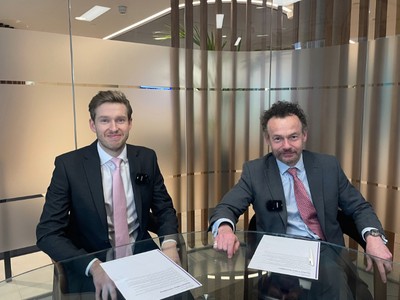In January 1964 I was transferred to the floor of the London Stock Exchange as an unauthorised clerk, known as a Bluebutton, where I worked for just over two years. Leaving the floor one afternoon after it had closed, I noticed one of the teleprinters that doled out the world’s news for all the brokers and jobbers to read was chattering away. Nobody else was around as I looked at the information coming from Reuters. It was the announcement of America’s first bombing raid on North Vietnam, marking the start of the Vietnam war.
I rushed back to the office to share this breaking news. As I recall, the market did not react significantly, unlike recent moves as fears of another conflict unsettle sentiment. Indeed, market volatility is back in spades, thanks to rising tensions over Russia’s plans for Ukraine. The global market sell-off actually reversed surprisingly swiftly initially, given the apparent lack of success of the diplomatic efforts to ward off a Russian invasion of its neighbour. Fears over the likely outcome have come to dominate market sentiment, pushing aside such concerns as rising inflation, Covid-19 and the continuing disruption to the world-wide supply chain.
One consequence of a Russia and Ukraine conflict is likely to be a further hike in gas prices. While military action by the NATO countries does look highly unlikely, tough sanctions against Russia appear inevitable, which would lead to retaliatory action such as the cutting off of gas supplies to Europe. Given the importance of Russian gas to much of the EU, this would undoubtedly lead to an upward spike in price, adding to inflationary pressures.
So, the next few weeks could prove tricky for investors. True, the speed at which the initial rebound took place does demonstrate an appetite for bargain hunting, but the uncertainty that any military incursion would create is bound to weigh heavily on sentiment. Add to that the meeting of the Federal Reserve Bank in the US, from which we learned the central bank is planning to be tough on inflation, and the scene is set for a difficult few days.
Nothing is certain in the investment world, but a combination of rising interest rates, a higher cost of living and increasing geo-political tension does not feel like a comfortable scenario for investors. Fingers crossed we get through this tricky period relatively unscathed. Already other NATO countries, notably France, are trying to lower the temperature, so a better outcome than many fear could be on the cards. I certainly hope so.



